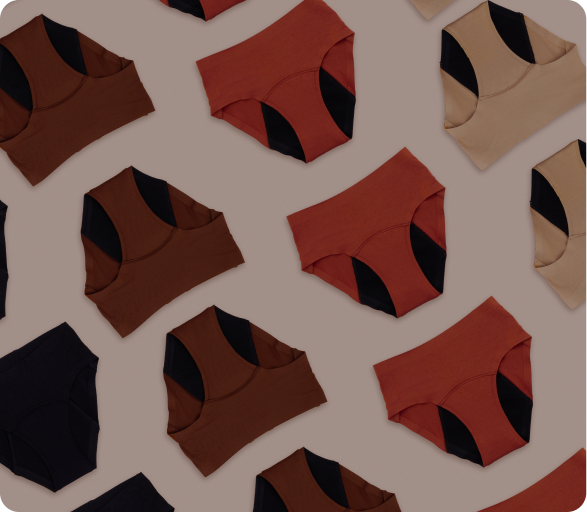Congratulations on your new bundle of joy! As you step into the world of motherhood, taking care of yourself after childbirth is crucial. In this article, we'll go over everything regarding the postpartum period, from physical recovery to emotional well-being, and even how to deal with postpartum depression.
What Is The Postpartum Period?
The postpartum period, also known as the postnatal period, is the time immediately following childbirth when a woman's body starts to recover from pregnancy and delivery. Typically lasting about six weeks, though it can vary for each individual, this period is dedicated to helping new mothers regain their pre-pregnancy condition. It also offers essential support as they adjust to motherhood and manage the wide range of emotions that accompany it.
Postpartum Care For New Mothers
Here are some important postpartum care tips for new moms to take care of themselves after giving birth. These suggestions will help you feel better and stay healthy as you recover from childbirth and adjust to life with your new baby.
Physical Recovery Tips
- Rest And Sleep:
- Get enough sleep and snooze when you can. Seek assistance with domestic duties and baby care.
- Try to sleep well at night, even if it means taking turns with your others for nighttime feedings.
- Nutrition And Hydration:
- Eat healthy foods with lots of vitamins and protein to help your body heal.
- Stay hydrated by drinking lots of water, particularly if you are breastfeeding.
- Exercise And Activity:
- Begin with mild activities like walking or pelvic floor exercises.
- Check with your doctor before starting any exercise routine to ensure it's safe for you.
Self-Care Practices
- Managing Postpartum Discomfort:
- Medications recommended by your doctor.
- Use ice packs or warm compresses to ease soreness or swelling.
- Skincare And Hygiene Tips:
- Wash your hands frequently and keep any wounds clean, particularly if you have had a C-section.
- Use gentle skincare products and avoid anything with strong fragrances.
- Bonding With Your Newborn:
- Spend time holding and cuddling your baby. Skin-to-skin contact is great for bonding.
- Talk to your baby, sing songs, and try baby massage to strengthen your connection.
What Is PPD?
Postpartum depression, or PPD, is a type of depression that some new moms experience after having a baby. It can make you feel sad, anxious, and overwhelmed, making it hard to take care of yourself and your baby. PPD can show up anytime in the first year after childbirth and might make it tough to sleep or eat well. It's important to recognize PPD and get help if you're struggling.
How To Deal With PPD?
Dealing with postpartum depression (PPD) can be tough, but here are some simple steps to help you feel better:
- Get Support: Talk to your loved ones about how you're feeling. They can offer help and comfort.
- Contact A Professional. Consider meeting with a therapist experienced in dealing with postpartum depression (PPD). They can help you develop effective coping strategies.
- Take Care Of Yourself: Get enough rest, eat healthy food, and do things you enjoy.
- Stay Active: Doing some exercise, like walking or yoga, can lift your mood.
- Consider Medication: Sometimes, doctors prescribe medicine to help manage PPD symptoms.
Benefits Of Periods After Delivery
After giving birth, your body goes through a natural process called postpartum bleeding or lochia. It might seem a bit bothersome, but it's important for your recovery. Here are three reasons why having periods after delivery is a good thing:
-
Cleaning The Uterus
Postpartum bleeding helps your body get rid of any leftover tissue or blood from the uterus after childbirth. This cleaning process lowers the risk of infection and helps you heal faster. -
Helping The Uterus Shrink
The bleeding triggers contractions in the uterus, helping it return to its normal size after pregnancy. These contractions also reduce the chances of excessive bleeding and support your body's healing process. -
Showing Healing Progress
The amount and duration of postpartum bleeding can show how well your body is healing. A gradual decrease in bleeding over time usually means you're healing properly, while sudden changes may need medical attention.
Do's And Don'ts After Giving Birth
After giving birth, prioritizing self-care is crucial for a smooth recovery. Here are some helpful dos and don'ts to guide you through the postpartum period.
Do's:
- Rest and sleep to help your body heal.
- Drink water to stay hydrated.
- Take breaks, especially during breastfeeding.
- Eat healthy meals for energy.
- Seek assistance from loved ones or professionals if needed.
Don'ts:
- Don't overexert yourself physically.
- Don't ignore discomfort or complications; talk to your doctor.
- Prioritize your emotional well-being.
- Keep up with follow-up appointments.
- Accept help with household tasks and childcare.
The time after childbirth is important for new moms. By taking care of yourself physically and emotionally, and reaching out for support when needed, you can make the transition into motherhood smoother. Remember that it's alright to ask for help and tackle things one at a time. With proper care and support, the postpartum journey can be a rewarding and empowering experience for both mom and baby.










